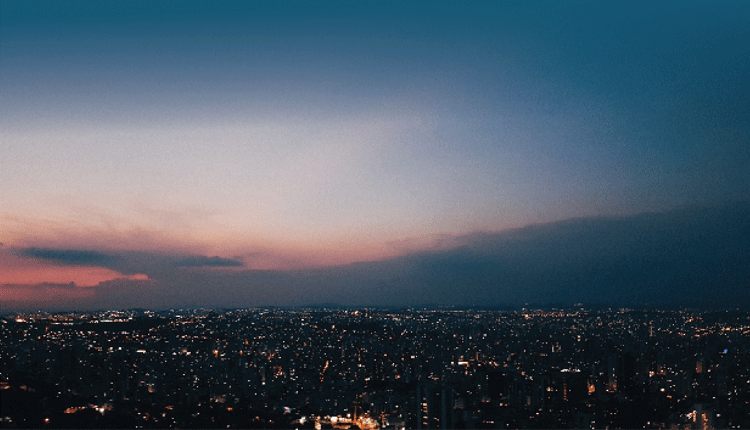Ten richest cities in Africa as per assets and liquidity
By Barry Silah, October 5, 20211. Johannesburg
Also known as Joburg and City of Gold, the South African city is considered the wealthiest city in Africa.
Most of Johannesburg’s wealth is concentrated in Sandton, home to the JSE (the largest stock market in Africa) and the head offices of most of Africa’s largest banks and corporates.
The total wealth is estimated at $226 billion (Sh24.97 trillion). It is also the most visited city in Africa with more than five million annual visitors.
The city is home to 2 dollar billionaires and about 16,000 millionaires.
2. Cape Town
Home to Africa’s most exclusive suburbs, including Clifton, Bantry Bay, Fresnaye, Llandudno, Camps Bay, Bishopscourt and Constantia.
Also home to several top-end lifestyle estates, including Steenberg, Atlantic Beach and Silverhurst Estate.
Major sectors there include real estate and fund management. The total wealth is $123 billion (Sh13.59 trillion).
It is the legislative capital of South Africa with a population of around 3.5 million residents.
3. Cairo
One of the world’s most important cities historically is also home to more billionaires than any other city in Africa.
Major sectors include financial services, telecoms, retail, tourism and basic materials.
The total wealth is $118 billion (Sh13.03 trillion). It’s the commercial and administrative capital of Africa’s second largest economy.
The city accounts for 22 per cent of Egypt’s economy and is home to the most billionaires in Africa, totalling five.
4. Lagos
Lagos, Nigeria’s largest city has wealth estimated to be $96 billion (Sh11 trillion). It has two dollar billionaires and some 5,400 millionaires.
Major sectors in the city include basic materials, oil and gas. Lagos makes a significant contribution to the Nigerian economy.
It contributes 30 per cent to Nigeria’s gross domestic product (GDP). The majority of Nigeria’s manufacturing is based in the city as well as many service industries such as finance.
5. Durban
Located on the East coast of South Africa, total wealth in the city is estimated to be $55 billion (Sh6.072 trillion).
Sugar refining is one of its main industries. South Africa produces 19.9 million tonnes of sugar cane a year, and most of it comes from the rolling green valleys of KwaZulu-Natal.
Durban has the highest number of dollar millionaires added per year of any South African city.
6. Nairobi
The Kenyan capital and administrative city has an estimated total wealth of $47 billion (Sh5.188 trillion).
The economic hub of East Africa is also one of the fastest-growing cities in the world.
There is a very fast growing middle-class in this city comparable to huge cities in the continent like Johannesburg.
It has been estimated that the richest 10 per cent of the population of Nairobi accrues 45.2 per cent of income, and the poorest 10 per cent only 1.6 per cent.
7. Paarl Franschhoek & Stellenbosch
The towns are located next to each other in South Africa. They combine to form one of the fastest-growing areas in South Africa for individuals with a wealth of US$1 million or more.
A large number of retired people in this category have moved to these towns over the past decade.
The three cities together have a total wealth of $47 billion (Shs 5.188 trillion).Together, the three towns are home to 2,800 dollar millionaires and two dollar billionaires.
8. Pretoria
The city has a total wealth of $42 billion (Sh4.638 trillion). The city’s most expensive suburbs are all found in Waterkloof Ridge, Waterkloof, Sterrewag, Brooklyn and Lynnwood.
It is one among the three capitals of South Africa with a population of 2.7 million.
Despite the many corporate offices, small businesses, shops, and government departments that are situated in the sprawling suburbs, its Central Business District still retains its status as the traditional centre of government and commerce.
9. Casablanca
The largest city in Morocco has total wealth estimated to be $39 billion (Sh4.3 trillion).
Family money, the banking,telecoms and real estate sectors, and a strong-performing stock market account for some of the wealth.
Remittances from Moroccans living abroad, tourism, and foreign investment, especially from Gulf countries, comprise the major external sources of money.
Increased consumption has been a boon to the economy however there are still issues with equitable wealth distribution or resource sharing.
10. Accra
Ghana’s capital has a total wealth estimated at $32 billion (Sh3.5 trillion).The city is a bustling metropolitan area that is home to roughly 2 million people.
The economy, however, is largely dependent on the export of commodities such as gold, cocoa, oil and gas, which makes it vulnerable to global economic slowdowns and declines in commodity prices.
The services sector is the largest contributor to Ghana’s GDP – 43.1 per cent with most of the operations based in the city.
